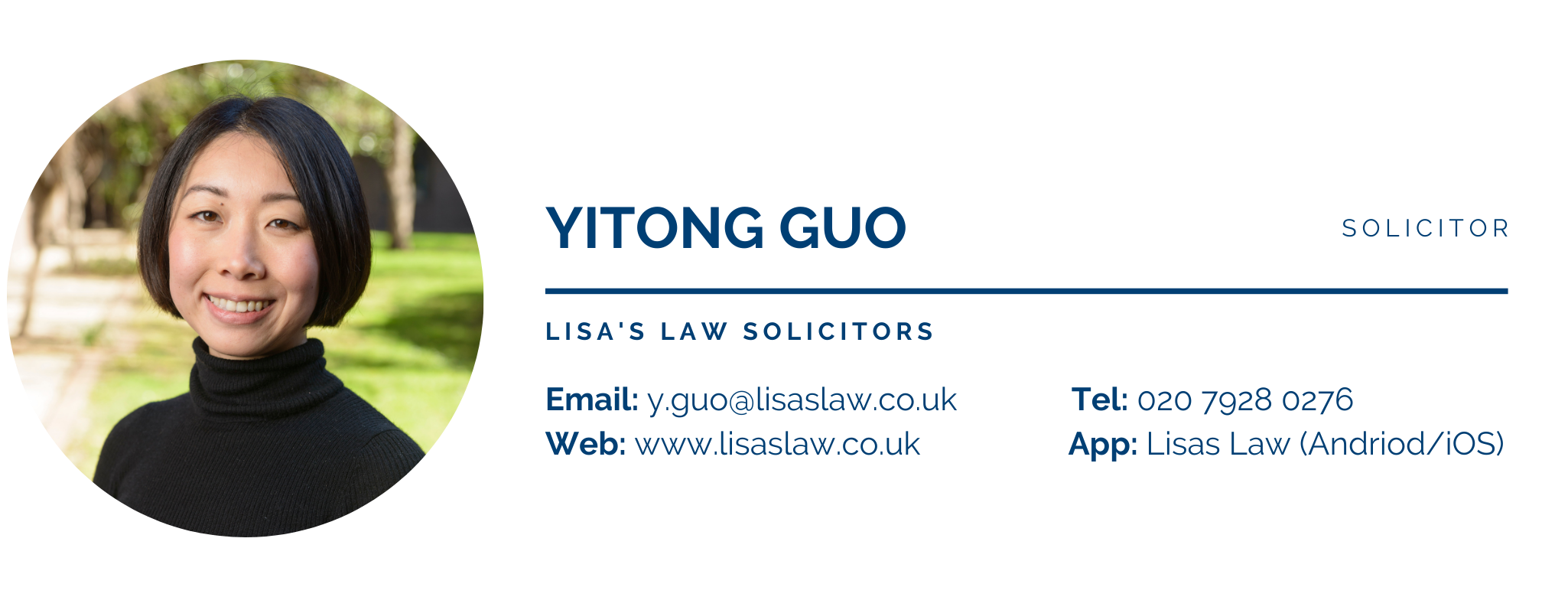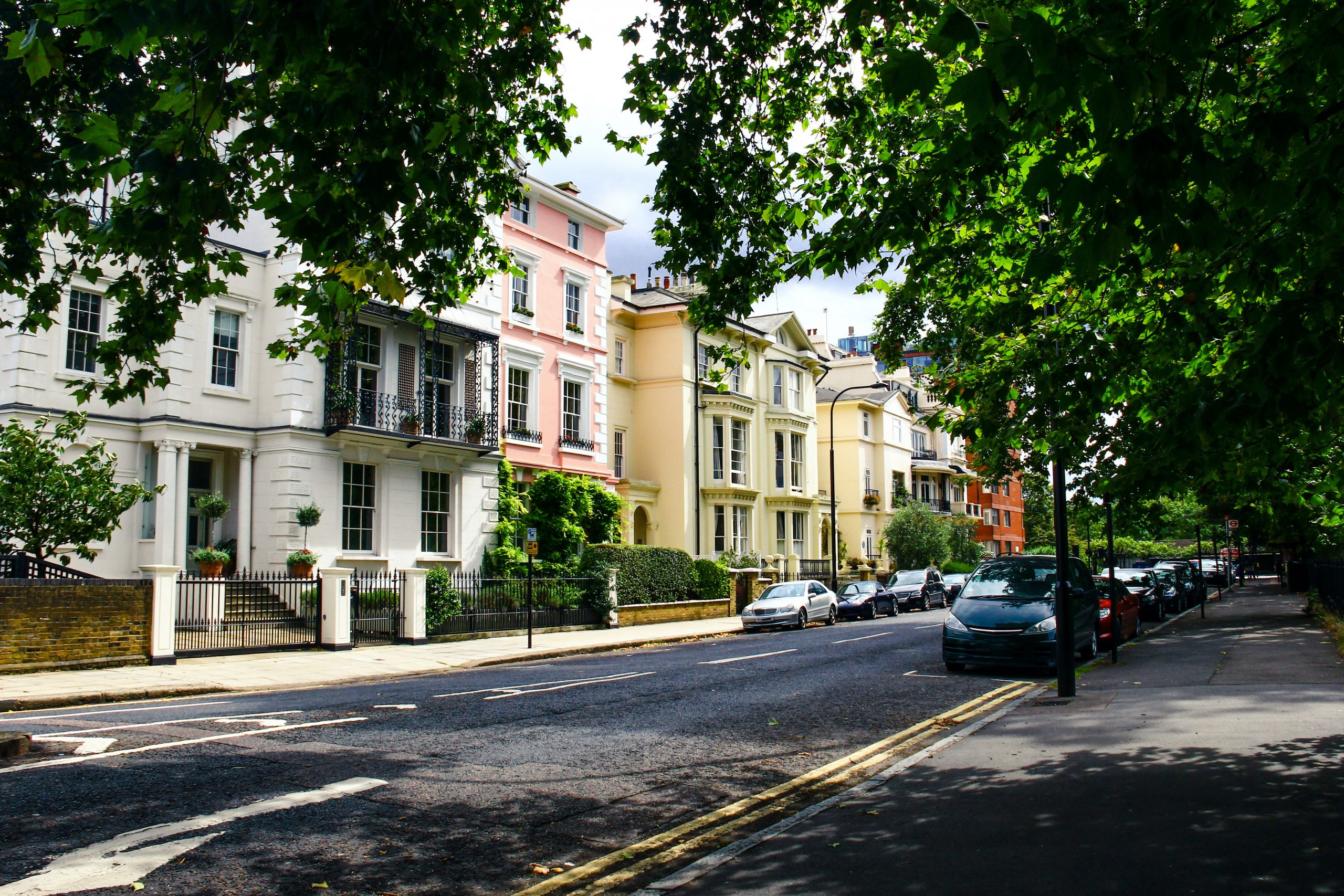By Yitong Guo

Today’s article comes from one of our solicitors, Yitong Guo, who specialises in property law. The article is about a dismissal application in the Chancery Division of the High Court concerning allegations of breach of duty by company administrators in relation to two companies (“the Companies”) whose business involved the development and sale of two properties (“the Properties”) in London.
In 2015, the properties were eventually sold to two different purchasers respectively, with the sale amounting to approximately £62 million.
As a result of the sales, Barclays Bank PLC, the primary secured funder to the Companies, recovered the whole of the principal amount totalling around £51.5 million, plus fees and interest. There was still a shortfall in the region of £10 million, however.
The case in question is Swiss Cottage Properties Limited (in liquidation); Fitzroy Street Capital Inc and another v Manning and another. It shows that deficiency does not necessarily amount to breach of duty when it comes to property, where loss is not proved.
The application
The Applicants in this proceeding, being an unsecured and junior secured creditor of the Companies, received nothing from the Administrations.
The Applicants averred that insufficient value was realised from the Properties, and made a number of the allegations of wrongdoing against the Administrators under two grounds:
1. The Administrators had acted ultra vires by entering into contractual arrangements with one of the purchasers; such arrangements were said to involve disposition of the Properties, which were subject to fixed charge securities in favour of the junior secured creditors but without first obtaining the permission of the court pursuant to Schedule B1, Paragraph 71 of the Insolvency Act 1986 (IA 1986).
2. The Administrators had breached their duty in that the Administrators had ignored or paid insufficient regard to the interests of the junior secured creditors, and that the efforts undertaken to market the Properties were inadequate with the result that they were sold for below market value.
Under this head of claim, the Applicants alleged the following specific breaches of duty, namely that the Administrators (see Judgement para 5):
“a) failed to understand the market value of the Properties;
1. b) failed to understand the identity and interests of the creditors with fixed charge securities over the Properties and the value of the interests secured;
2. c) failed to perform their functions in the interests of the creditors as a whole and to act impartially in balancing the competing interests of individual creditors;
3. d) failed to provide creditors with sufficient information to allow them to participate in the collective administration regime in a meaningful way;
4. e) failed to take reasonable care to obtain the best price for the Properties which the circumstances of the case permitted.”
Mr Justice Adam Johnson presented an in-depth inspection into the Administrators’ conduct on marketing, valuation and sale process of the Properties before giving his legal argument.
The legal arguments
The Applicants’ primary claim relies on Insolvency Act 1986, Sch B1, para. 71: that the Administrators acted unlawfully and/or in breach of their custodial or stewardship duty by disposing of the Properties which were subject to fixed charge securities in favour junior secured creditors, as if they were not subject to those securities and without obtaining the permission of the Court.
This argument was rejected by the Judge who considered that entering the said contractual arrangement did not in fact involve any disposal of the property by the Administrators as if not subject to the Applicants’ security. As in the ordinary course, Administrators have no power to dispose of property in a manner which overrides a creditor’s security interest, at least not without the creditor’s consent.
The Judge shrewdly pointed out the obvious: “Administrators are agents for the company over which they are appointed and have no greater power to make a disposal free of such an interest than the company itself would have. Any attempt to do so would be bound to fail: the purchaser would be bound by the security interest, and if the company (or the Administrators) had contracted on the basis that the security interest was overridden, then it (or they) would be in breach of contract.
…. it seems to me that the Administrators contracted on the basis that they would cause one of three things to happen at completion: (i) they would procure consent of secured creditors who would deliver the Land Registry DS1 forms; (ii) they would make an application to the Court under Sch. B1, para. 71; or (iii) they would procure that Barclays sold as mortgagee in possession. None of these alternatives, however, contemplated that the Companies would transfer a beneficial interest in the Properties free from the second-ranking charge prior to completion. On the contrary, each contemplated that an act from a third party independent of the Administrators would be needed in order for completion to take place. That structure, as it seems to me, is quite inconsistent with the idea that there was any immediate disposal of an interest in the Properties not subject to the existing security interests.”
Previous cases cited
On the alternative claim under the breach of duty claim, shortcomings and deficiencies in the conduct of the Administrators had been admitted and identified. Several legal standards and principles on standard of care and duty of administrators were cited and considered in assessing the conduct of the Administrators and their duty of care.
The basic legal standard on the relevant standard of care Re Charnley Davies (No. 2)[1990] BCLC 760 (at 775e-776a):
“It is to be observed that it is not an absolute duty to obtain the best price that circumstances permit, but only to take reasonable care to do so; and in my judgment that means the best price that circumstances as he reasonably perceives them to be permit. He is not to be made liable because his perception is wrong, unless it is unreasonable.”
The overall position Davey v Money[2018] Bus LR 1903:
“An administrator must be a professional insolvency practitioner. A complaint that he has failed to take reasonable care in the sale of the company’s assets is, therefore, a complaint of professional negligence and in my judgment the established principles applicable to cases of professional negligence are equally applicable in such a case. It follows that the administrator is to be judged, not by the standards of the most meticulous and conscientious member of his profession, but by those of an ordinary, skilled practitioner. In order to succeed the claimant must establish that the administrator has made an error which a reasonably skilled and careful insolvency practitioner would not have made.”
On the general duty to act with reasonable care and skill Brewer v Iqbal [2019] EWHC 182
“Failure to understand the nature of the intangible asset, and the true value of the EPGs, led to a failure to properly market the EPGs. These constituted a failure to act with reasonable care and skill.”
On the court’s position that it will generally not question the administrator’s commercial judgment unless it is under the grounds of wrongly applying the law or is conspicuously unfair to a particular creditor. Lightman & Moss:
“…a broad judicial understanding of the nature of the administrator’s task and the challenges that he faces on appointment; an appreciation, in particular, that the administrator will invariably be operating at pace in difficult and urgent circumstances which dictate the need for quick decision-making, often based on less than perfect information, if value is to be preserved. It also reflects an institutional judgment that licensed professionals are better placed than the court to formulate and implement commercial strategy according to the circumstances in which they find themselves.”
The principle that an administrator is entitled to rely on appropriate professional advice in carrying out his duties and will not be liable in negligence if the advice relied on appears to be competent: Davey v. Money. It is up to the administrators to establish that such reliance was reasonable in the circumstances: One Blackfriars.
The judgement
In light of the above, there were several deficiencies in the Administrators’ conduct that had been identified including lack of care, failure in engaging with second-ranking junior secured creditor, failure in explaining and circulating information and unreasonable imposition of deadline. However there had been no findings for breach of duty owed towards the Applicants.
The judgement went on to consider whether any of those deficiencies caused loss to the Applicants. That depends on assessing whether the overall outcome is likely to have been different for the Applicants, had the Administrators’ duties been fully complied with. The conclusion is it had not, because the Properties were sold for their market value, or for the best price reasonably achievable, it follows that whatever deficiencies there were in the Administrators’ conduct, they did not result in financial loss to the Applicants.
The Judge further dismissed the point made by the Applicants that they were deprived of the opportunity to participate in the Administrations in a more active way. This is because: “whatever the deficiencies in the Administrators’ conduct, the fact was that BMBAR and BMBSCI were sufficiently aware of what was proposed in relation to the marketing of the Properties, and if they had considered there was a real prospect of value being lost, they could and would have behaved differently than they in fact did. There is no good reason to think they would have behaved in any different manner, or that there would have been a different outcome overall, if the Administrators had engaged with them in a more formally correct way, including by means of a creditors’ meeting if BMBSCI and BMBAR had chosen to call for one.”
Our thoughts
Although there were some deficiencies in the conduct of the Administrations, the Applicants’ claims failed and were dismissed. Under the circumstances, the Administrators had not acted unlawfully. There is no realistic prospect that in a counterfactual scenario in which the Administrators had engaged differently with the secured creditors, any different outcome would have been achieved; and there had been no financial loss caused to the Applicants despite Administrators’ deficiencies in conduct.
Have questions about this article? Get in touch today!
Call us on 020 7928 0276, our phone lines are open and we will be taking calls from 9:30am to 6:00pm.
Email us on info@lisaslaw.co.uk.
Use the Ask Lisa function on our website. Simply enter your details and leave a message, we will get right back to you: https://lisaslaw.co.uk/ask-question/
Or, download our free app! You can launch an enquiry, scan over documents, check progress on your case and much more!



















